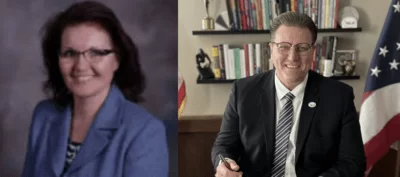(THE CENTER SQUARE) – A nonprofit drug policy group claims in two lawsuits the organization that distributes Ohio’s opioid settlement is operating secretly and has violated the state’s open meetings law.
Harm Reduction Ohio, according to its website, represents people harmed by opioids. It says state law and the opioid settlement require the OneOhio Recovery Foundation Board to follow Ohio’s Open Meetings Act and Public Records Law.
“People who’ve lost loved ones deserve to know how opioid settlement money is handled and to be involved in those decisions,” said Harm Reduction Ohio President Dennis Cauchon. “Sadly, the opioid settlement board has been secretive and hostile to the impacted population. This has to change. Thirty-five thousand Ohioans didn’t die from opioids so elected officials could have a secret slush fund for themselves.”
Gov. Mike DeWine and Attorney General Dave Yost created OneOhio to jointly approach opioid settlement negotiations and distribution of funds from those settlements throughout the state. As previously reported by The Center Square, DeWine announced in late July the first round of payments totaling more than $8.6 million was sent to local governments. The group will hand out $404 million of the state’s $808 million opioid settlement.
Harm Reduction claims the OneOhio board is a governmental board and is required to follow both state law and the settlement agreement. According to the group, four of OneOhio’s 29 members are from the private sector.
Harm also claims OneOhio has refused to respond or acknowledge records requests, and it claims it is exempt from state ethics laws and being audited by the state auditor.
The group also says DeWine announced on the Recovery website the board would hold its first meeting and said the board was not subject to Ohio open meetings laws but would do so anyway.
Harm says OneOhio has held frequent meetings in violation of the Open Meetings Act, and the exact number of members is unknown because the group does not announce most meetings.
The lawsuit challenging the open meetings case was filed in Franklin County Common Pleas Court, and the suit regarding public records was filed in the Ohio Supreme Court. Jurisdictions, according to Harm Reduction, differ because of Ohio law.






